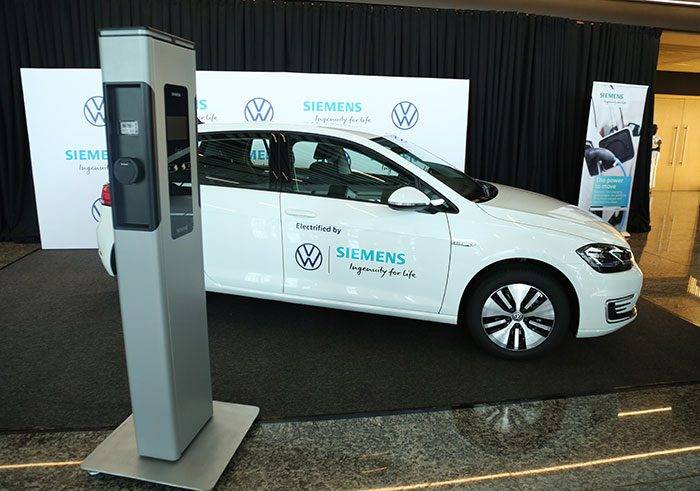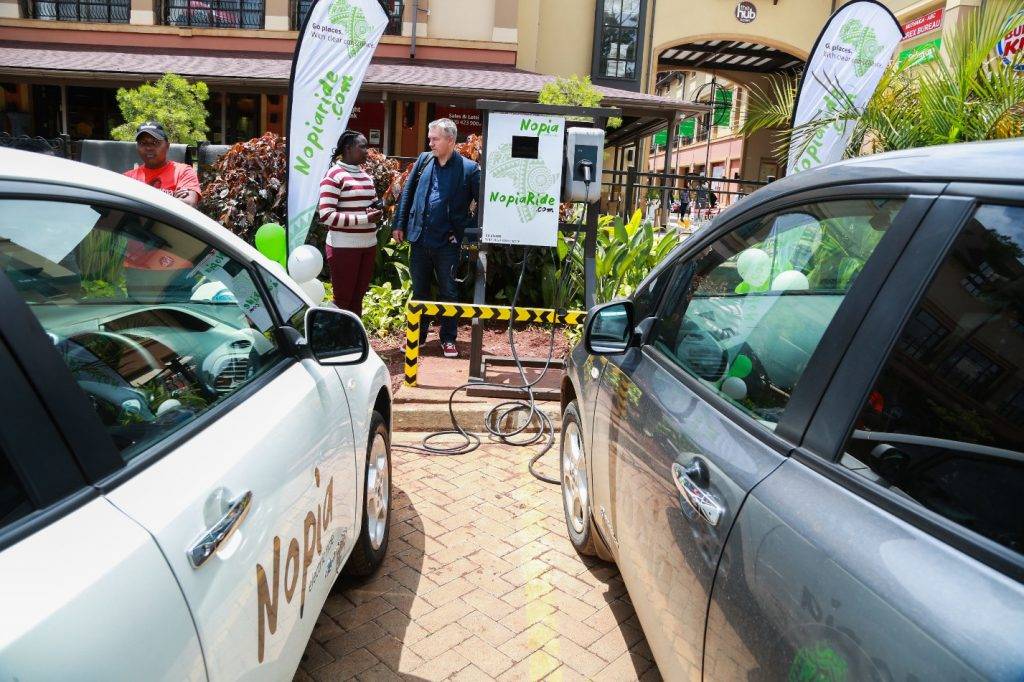From Smartphone Factory To Electric Cars, What Can Kenya Learn From Rwanda?

If there is a nation that has been slowly been making tides that almost surprises everyone, it’s Rwanda. Weeks ago it had us with news of the country having her own smartphone factory. This would make it the first state in Africa to do so.
But as if that’s not enough, we all (most of us, at least) now know that Rwanda launched its first initiative into the electric car world. As reported, the Kagame-led nation debuted its first batch of electric cars on the 29th of October. This is made possible in partnership with Volkswagen and Siemens (yes, it still exists).

And reading and writing of all these strides have got us thinking of what Kenya plans to do with the future of transportation that is literally what mother earth is crying out for. So, for those who think that electric cars are a matter of class, you might want to think again.
Climate change has been a huge factor sparking these conversations all over the world of what needs to be done right. And with carbon emissions being one of the major causes for global warming other than deforestation, it is reasonable to look at what emits that carbon; motor vehicles.
Carbon Print
Don’t get me wrong, the form of transportation we currently have has had a huge mark on basically the whole Kenyan economy. After all, where would we be without efficient transportation? But I think the question of what the country can do to bring a part of the global initiative needs to address and fast.
Climate change is not a thing affecting the developed nations only. If you need proof, just do some research on what our environment looks like now compared to how it was 30 or 50 years ago.
Deforestation may be a major cause but it’s definitely not the only one. carbon emission across the country is one huge factor next to the former. And as much as we may blame the print left behind by the current factories, why not look at what we basically use every single day?
Current Situation In Kenya
There are about three million registered motor vehicles driving on our Kenyan roads on any given day. But as reported once by iHub, there have been efforts to develop new standards for electric cars that are imported to make sure they are safe for the environment. This then means that these institutions are planning on actually having a couple of them on our roads.
And with the only significant move to these new form factor being form Nopia, not much has been noticed so far. This then begs the question of whether anything is being done. And if it is, then what happens to the already existing fuel-consuming vehicles. Is Kenya ready for the move to electric vehicles?

First off, this move would only be seen as successful if the old petrol and diesel vehicles were phased out as the electric ones came in. But would our environment be favourable for them?
For a while now, KEBS has been researching whether these electric batteries would be able to handle a long duration of exposure to the hot climate we have here. With the brutally high temperatures seen in Kenya, it is important to know that electric vehicles can run without the worry of battery explosions in dry and extremely hot temperatures.
Secondly, would these vehicles be able to withstand the dry and dusty conditions? After all, electric machines aren’t known to fare that well with lots of dust.
Thirdly would be the infrastructure rollout necessary for these electric vehicles. These vehicles need charging stations placed at strategic places just like the petrol stations we have now. More to that, they would require to be energy efficient demanding some work from the national supplier Kenya Power to ensure a city like Nairobi has the right electric grid for this.
This is exactly what Rwanda has been figuring out with its new project. The plan is to have about 15 charging station across Kigali. And with such an investment, it would obviously be expected for more companies to come in and have more stations for more efficiency.
Hurdles
Sure, most will say that most commuters in Nairobi depend on matatus for everyday transport. But even that billion-shilling industry could have a way of transforming. As written in our previous article, there already is a startup that is selling the idea of changing the existing PSVs to electric. All it would need is the county government and the industry’s top bosses’ consent and willingness to do this.

But with the industries run by hives of cartels all over, would any of them be willing to shut down operations for even a day for this to be done. And would they even be willing to spend even a dime for this?
Additionally, this move would also mean a move by the stakeholders in the petrol and diesel industry in Kenya. And if examples serve right, most of these business people would not be that willing to move to such an unexplored industry in the country.
Benefits
Moving away from the challenges such a move to electric cars would mean exposure to a young industry. This would bring in so many investors who have been more than interested in this initiative around the world. Already automobile manufacturers like Jaguar, Audi and Nigus Enfinity have revealed plans of bringing in such operations into the country. The Nigerian company, Nigus Enfinity, has expressed interest in having an assembly factory in Kenya by 2020.
And if this hasn’t happened, it would be really easy to figure out who isn’t compliant here.
Let’s not even talk about the environmental and health benefits it would bring to basically everyone. Who wouldn’t want to breathe air that’s not filled up by the same old grey smoke every day?
New opportunities to learn and employment would also be available. Mechanics would have o shift their focus to the mechanics involved in the electric cars. These charging stations would require stuff. Their establishment would require new expertise which more people getting projects to work on.
The whole point is that as much as there could be resistance, this will have to happen one day. We don’t know when, but change is inevitable. And like I said prior, it’s not about class, it’s for our own good.
Sure, the government has this plan as per the Green Economy Strategy and Implementation Plan 2016 – 2030. But when was the last time you knew for plans to actually be executed?
There’s Hope Still
To help encourage adoption of electric vehicles, the 2019 finance bill awaiting parliament’s approval reduced excise duty on electric-powered vehicles from 20% to 10%. Earlier in the year, the Kenya Bureau of Standards (KEBS), adopted electric vehicle standards.
However, according to Ken Osano, the Country Director for Ekorent (Nopia’s parent company), the 10% excise duty is good, but it will be negated by the current retail selling pricing policy recently introduced by the government. “The government should zero rate electric cars and capitalize on the business opportunities, jobs and the circular investment to be created by the electric vehicle industry.”
The government should zero rate electric cars and capitalize on the business opportunities, jobs and the circular investment to be created by the electric vehicle industry.
Either way, the fact that there is someone out there thinking of policies that could help make this a reality is already a good sign. We keep an open mind but hope for the best.
For more such stories, visit gadgets-africa
Feature image courtesy: newtimes.co.rw